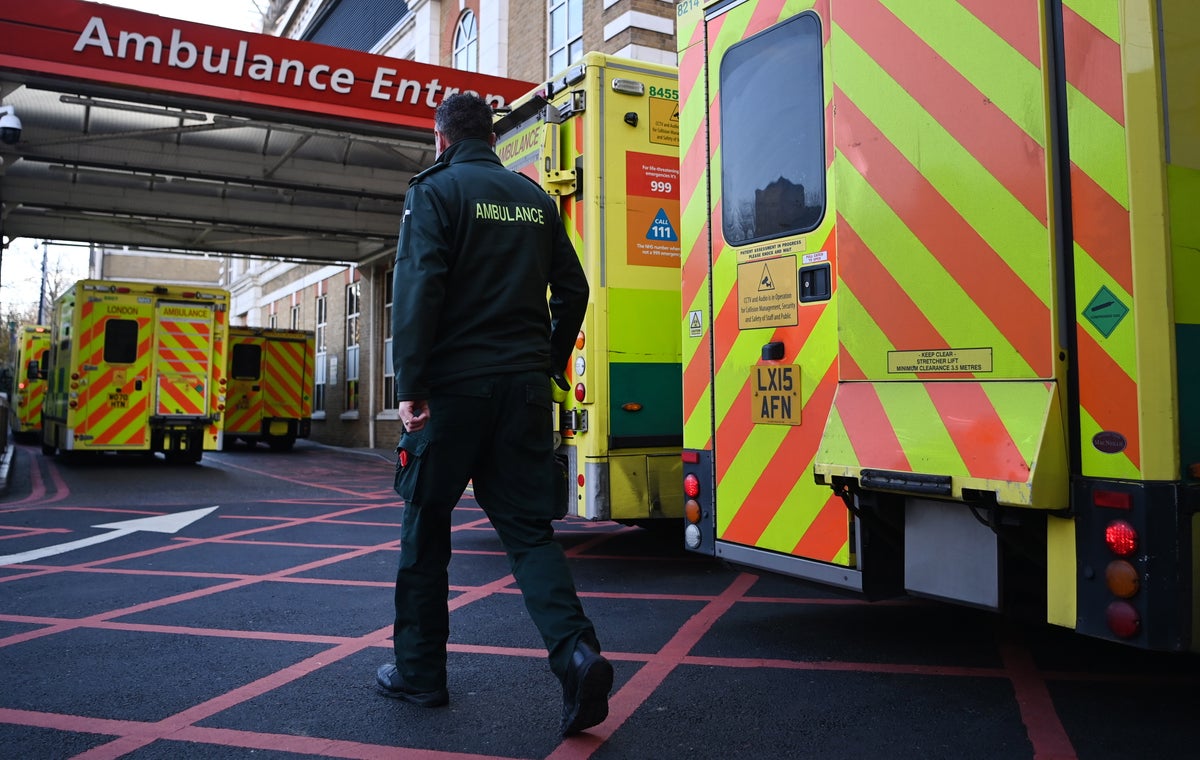
Ambulance workers represented by three unions are set to strike on Monday (23 January) escalating the dispute over pay and staffing following similar strikes in December.
Thousands of members of Unison, Unite and the GMB will walk out across England and Wales on Monday. Up to 15,000 Unison ambulance workers will strike for the third time in five weeks and will be joined by 5,000 of their NHS colleagues at two hospital trusts in Liverpool.
The latest action comes after strikes on 21 December and 28 December, while similar walkouts are planned in the coming weeks by nurses and other NHS workers.
The unions have accused the NHS’s leadership of not wanting to find a resolution to what has become an escalating and bitter dispute over pay.
From 7am on Monday, paramedics, emergency care assistants, ambulance technicians, other 999 crew members and control room staff across five services in England – London, Yorkshire, the North West, North East and South West – were joining picket lines.
In what has been dubbed potentially the biggest strike action the NHS has ever seen, thousands of nurses and ambulance workers will stage walkouts on 6 February if no deal has been reached by then. Following last month’s action in December, Christina McAnea, Unison general secretary, said the government remained “completely intransigent” on pay, which is not expected to be discussed at a meeting between Steve Barclay and union officials on Tuesday.
During the talks, the health secretary was expected to insist that both category 1 calls, the most immediate life-threatening emergencies, and category 2 calls – including heart attacks and strokes – are answered.
But a Department of Health and Social Care (DHSC) source told The Times that Mr Barclay was “very concerned that some union officials still haven’t confirmed that they will cover all emergency calls in their talks with trusts”.
Speaking to GB News this morning, health minister Will Quince said that individual NHS trusts are putting in place contingencies ahead of the strike.
“There are there are minimum service levels which are negotiated at a local level called derogations between the unions and individual trusts,” he said.
“In some cases, with regards to nurses, that will happen at a national level. With ambulances, it is all happening at a local level.
“Those conversations are ongoing. We will meet the unions later today. But it’s actually at an individual ambulance trust level, those derogations are taking place. And I know that individual trusts are putting all sorts of contingencies in place.”
Some 750 military personnel were drafted in to cover emergency calls on 28 December, though Mr Quince confirmed those covering for striking workers will not be allowed to break red lights or turn on blue lights when driving ambulances.
But he insisted that military staff will still “play a hugely important role in supporting paramedics and ambulance staff in getting people to emergency departments”.
He told the BBC that he would be clear with the trade unions that there should be a “minimum service level”, adding that he was “concerned” about the action.
Amid reports that category 2 calls could go unanswered, Mr Quince urged anyone with chest pains on Wednesday to call 999 despite the strike action by ambulance workers.
“If you have chest pains, then phone 999. If it is not life-threatening, then it’s really important that people call NHS 111 or NHS 111 online,” he told BBC Radio 4’s Today programme.
Asked if having chest pains is an emergency and that a patient could get an ambulance, Mr Quince said: “If you have chest pains, call 999 and the expectation is, and I’ve been really clear with you, I don’t think that there is any paramedic, ambulance technician, anyone working in our NHS, whether they’re on a picket line or not, that would not respond to a 999 call where somebody has chest pains and there is a threat of a heart attack.
“Call 999, a clinician will assess that call and then consider the appropriate action whether that’s an ambulance, whether it’s community services, whether it’s NHS 111.”







